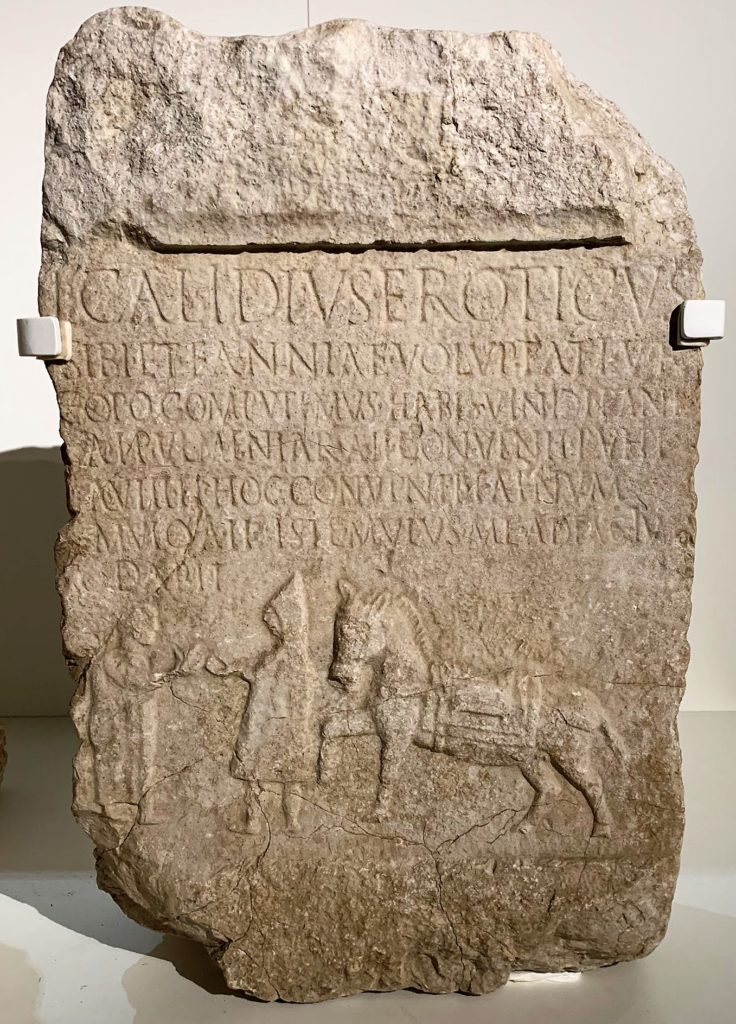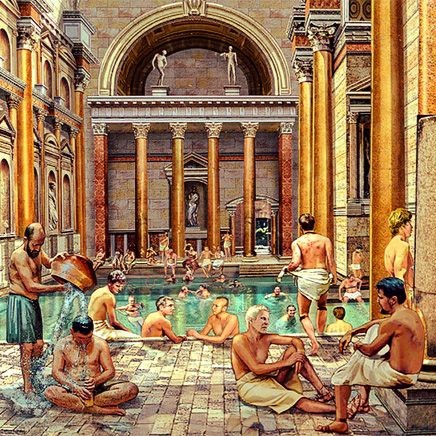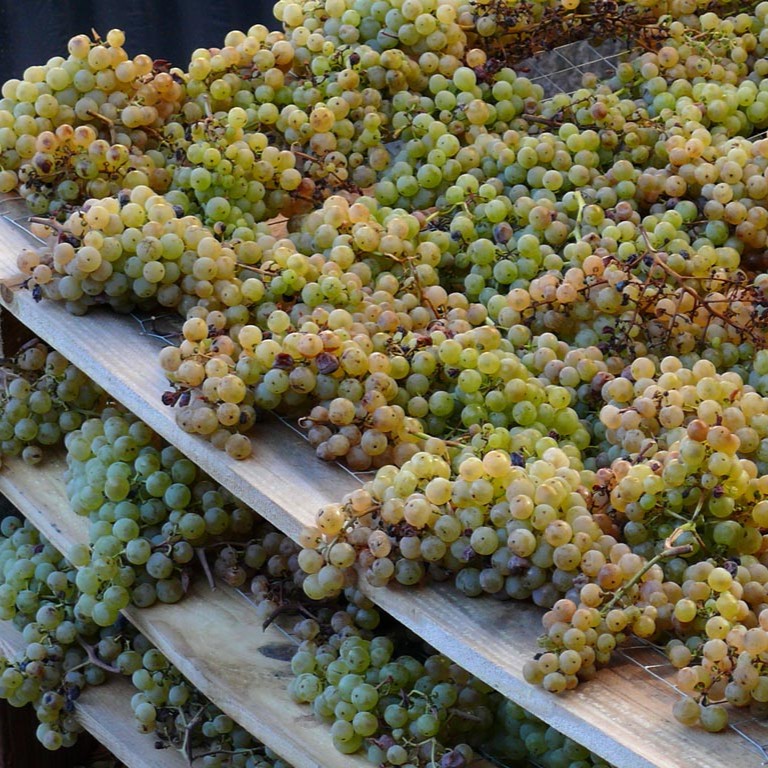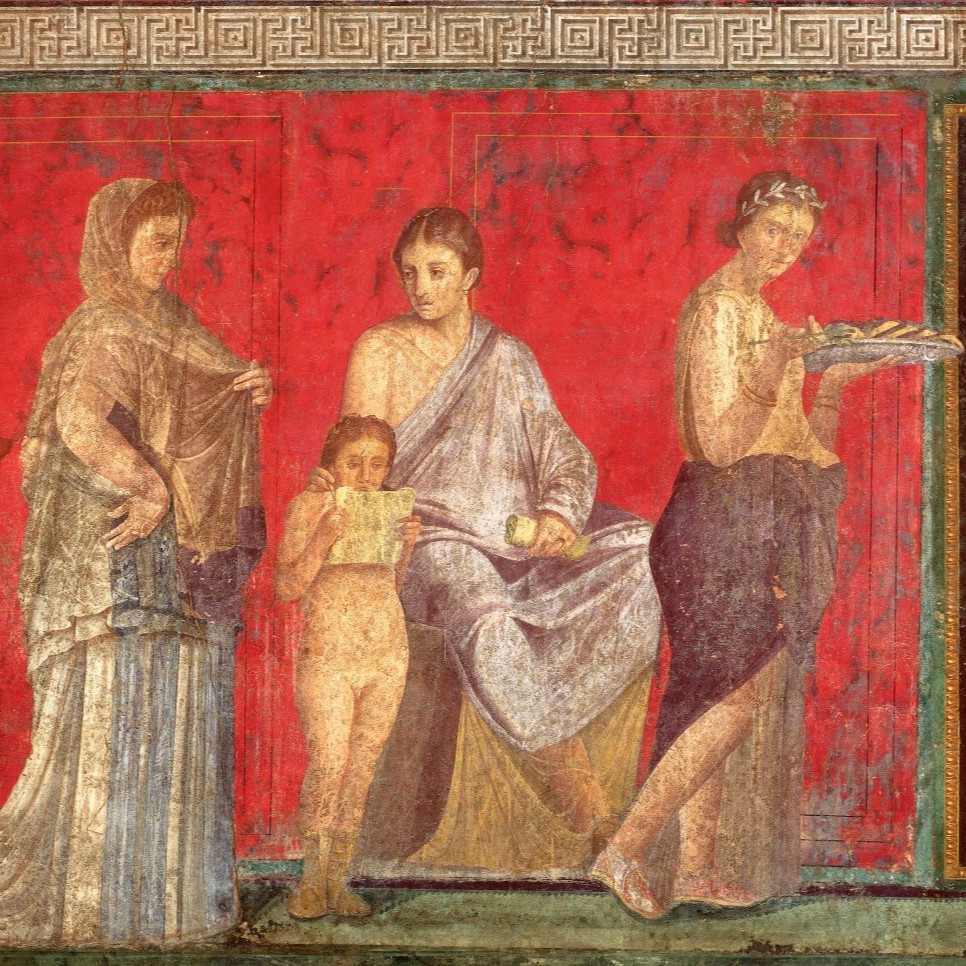Translated from French with ChatGPT (please notify us of errors)

The reproduced stone depicted here, dated from the late 1st century AD and found in Aesernia, 170 km southeast of Rome, was evidently designed to catch the eye of the traveler. It starts with the dedication: “In memory of Lucius Calidius Eroticus and his wife Fannia Voluptas.” As the English language has preserved words with the same roots, there is no need to explain the meaning of these names…
Was it a tombstone, as suggested by its shape, or the advertisement of a playful innkeeper? Commentators remain undecided.
It must be noted that the rest of the text is unconventional for a funerary monument. It is a joke, illustrated by the relief depicted below. It depicts an innkeeper, likely Calidius Eroticus, and his departing customer.
The text reads:
copo, computemus.
habes vini Ɔ I, pane[m] | a(sse) I, pulmentar(ium) a(ssibus) II.
convenit.
puell(am), | a(ssibus) VIII.
et hoc convenit.
faenum | mulo, (assibus) II.
iste mulus me ad factum | dabit.
Which translates to:
– Innkeeper, let’s settle the accounts!
– You had a measure of wine, bread: 1 as. For the stew: 2 as…
– Agreed.
– …for the girl: 8 as.
– That works for me too.
– Hay for the mule: 2 as.
– This damn mule will bankrupt me!
During the reign of Tiberius, a worker earned 16 as per day of work. Thus, for the Roman reader, the joke relies on the exorbitant price of the prostitute in comparison to the other consumables, as well as the reputation of the mule, an animal as indispensable as it was disliked in antiquity.
It is also evident that Eroticus’ inn offered more than just accommodation and meals. Within the Roman Empire, where travelers and merchants covered long distances, such establishments were common. The caupona was often a combination of hotel, restaurant, and brothel. In fact, Latin authors attributed all vices to innkeepers, who were often former slaves. As for the female proprietors and waitresses, they were systematically associated with witches and prostitutes.

A graffiti from Pompeii – depicted alongside – testifies to the discomfort and unsanitary conditions of such places:
Miximus in lecto, fateor, peccavimus, hospes; Si dices quare, nulla matella fuit
“We urinated in bed, I admit, innkeeper, we were wrong. If you ask why, there was no chamber pot!”
This helps us understand why inns were frequented only by lower-class men. The wealthy and patricians preferred to be hosted by friends, following an ancient Roman tradition of hospitality.
Other articles in English from the Nunc est bibendum blog








